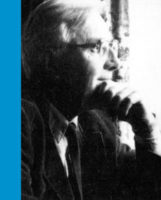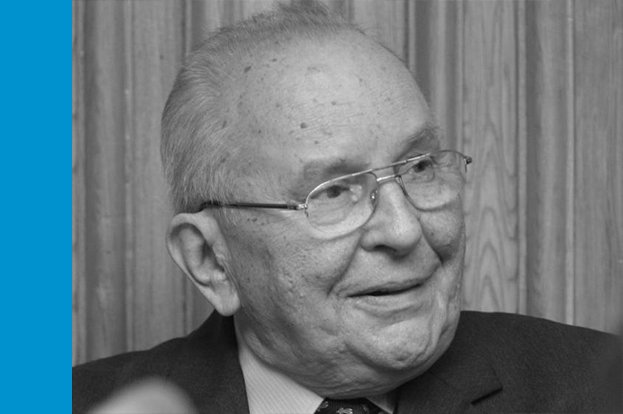History
THE UNIQUE IDENTITY AND STRENGTH OF THE INSTITUTE OF SOCIOLOGY AT THE UNIVERSITY OF WARSAW WAS FORMED DURING THE COURSE OF ITS HISTORY.
The Department of Sociology under its current name has been operating since 2019, but in fact has existed continuously since 1957. However, the history of sociology at the University of Warsaw goes back much further, beginning just after the restoration of Independence – at the Faculty of Law and Political Science.
1919-1939
Between 1919 and 1931, the Faculty of Law and Political Science had the first Chair of Sociology in Poland, created for Leon Petrażycki, and between 1921 and 1935, the Chair of the History of Social Systems, created for Ludwik Krzywicki. The next chairs of sociology were already established at the Faculty of Humanities, and the current Department of Sociology originated from them.
Stefan Czarnowski played an important role in the introduction of sociology at UW. In 1931, he obtained the Chair of Cultural History, began training in sociology and in 1934 received an extension of the professorship to sociology.
In 1934, a Chair of Sociology was also established for Jan St. Bystron. Stanisław Ossowski began working at the UW; Jozef Chałasinski appeared briefly. The first students received the degree of “Master of Philosophy in Sociology,” and the first doctoral degrees were also conferred. The development of sociology at the University was interrupted by the war.
Presidium of the Second Congress of Polish Sociologists (1935). From left: Ludwik Krzywicki, Czesław Znamierowski, Stefan Czarnowski, Florian Znaniecki, Jan St. Bystroń, Kazimierz Korniłowicz, Józef Chałasiński.
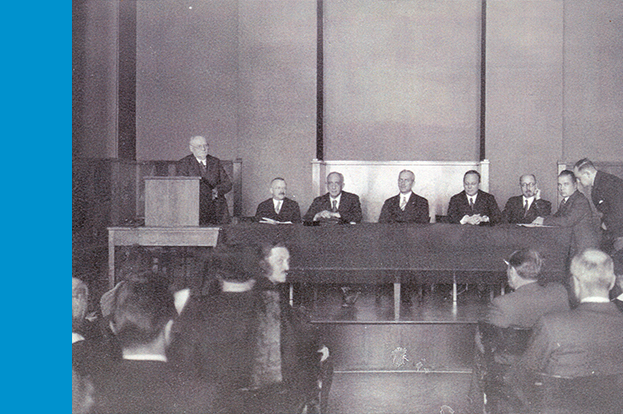
1947-1950
After the war, the Department of Sociology quickly resumed work, and new departments and chairs were established. Field research in the study of sociology were undertaken; in 1947 and 1948, two classes of students were enrolled in sociology. At that time, Stanislaw and Maria Ossowski, Nina Assorodobraj, Jan St. Bystroń, and Stefan Nowakowski taught here. Under Ossowski’s direction, the Sociological Seminar operated, attracting students from various departments. After several years, the communist authorities began to liquidate sociology as a separate field of study and research. Sociology departments were dissolved, and the Ossowskis were removed from teaching.
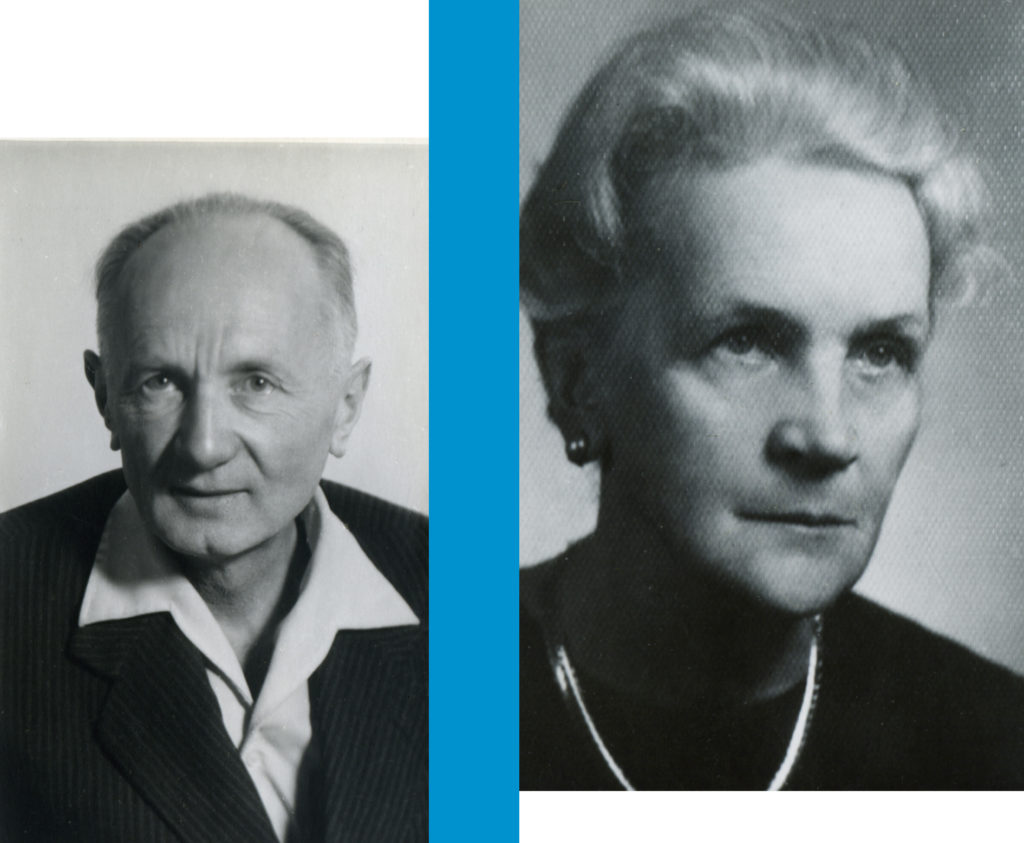
Stanisław Ossowski (1897-1963) and Maria Ossowska (1896-1974)
1947-1950
The Faculty of Philosophy and Sociology was separated from the Faculty of Humanities, soon transformed into the Faculty of Philosophy. The Department of History of Philosophy and Social Thought (Nina Assorodobraj) and the Department of Historical Materialism (Julian Hochfeld) in the Department of Dialectical and Historical Materialism were established in 1952 to replace the disbanded sociological departments with selected sociological interests continuing there.
High school graduates were not admitted to sociology, but in 1949 and 1950 they were admitted to the 3-year Social Sciences Study. After that, they were admitted only to philosophy; social science graduates were also admitted to philosophy as “second degree studies.” Some of the philosophy students were interested in social issues and wrote master’s theses on them, and in 1957 some transferred to sociology.
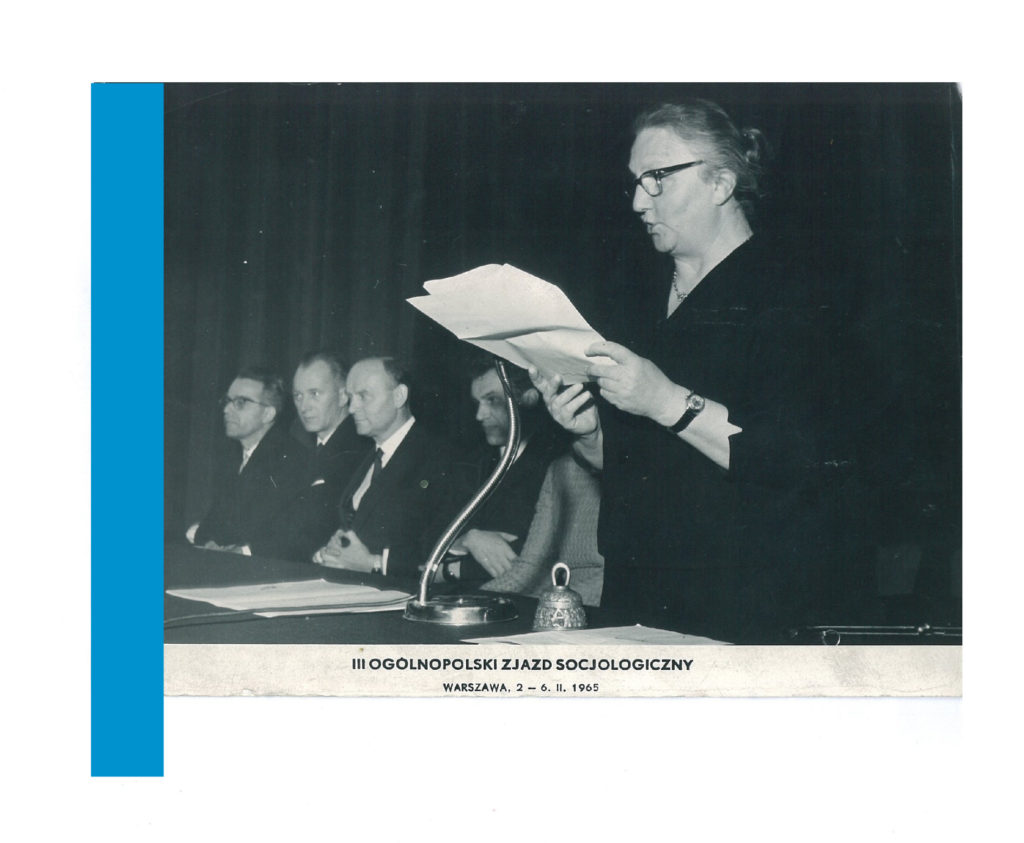
Nina Assorodobraj (1908-1999)
1956-1960
After October 1956, sociology returned to Polish universities. In 1957, a sociology section was established at the Faculty of Philosophy of the UW: students were again admitted, and a sociology department team was formed. The team included the Department of Sociology (Ossowski), the Department of Sociography (Nowakowski), the Department of the Sociology of Political Relations, soon transformed into a second, Marxist Department of Sociology (Hochfeld), the Department of the History of Social Thought (Assorodobraj) and the Department of the History and Theory of Morals (Ossowska).
The masters were joined by a generation of their students, educated after the war. Sociology began to be practiced here by the following notable figures: Zygmunt Bauman, Szymon Chodak, Maria Hirszowicz, Aleksander Matejko, Jan Malanowski, Stefan Nowak, Adam Podgórecki, Jerzy Szacki, Klemens Szaniawski. This, one of the most illustrious periods in the history of Warsaw university sociology, drew to a close in 1968.
1960-1988
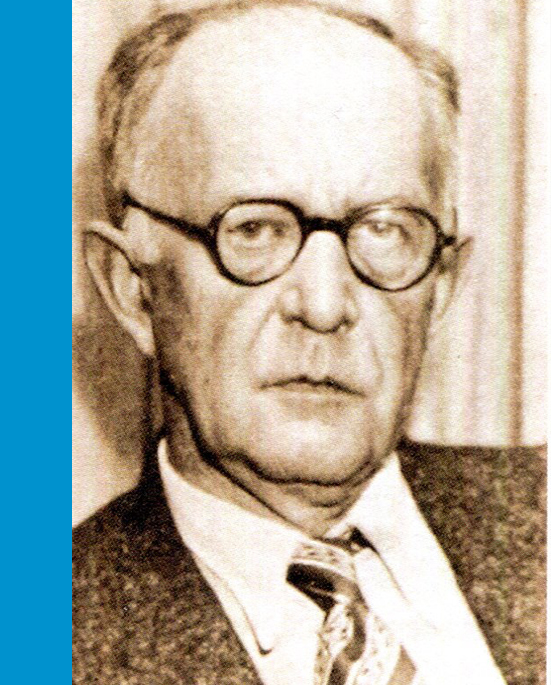
Stefan Nowakowski (1912-1989)
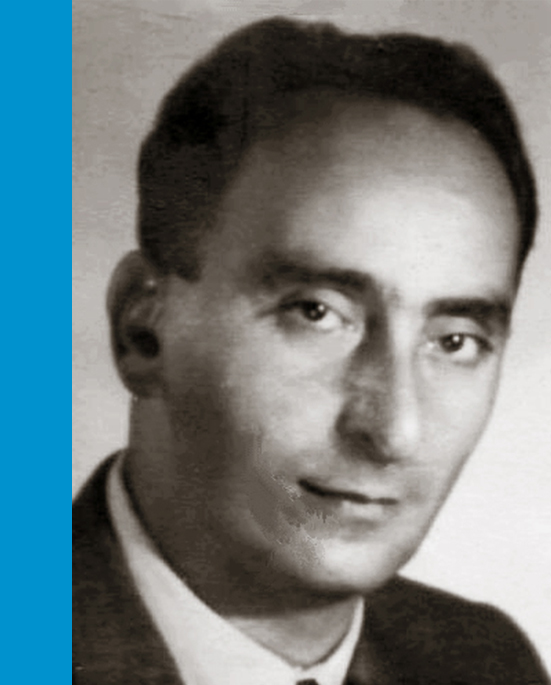
Julian Hochfeld (1911-1966)
1960-1988
The Faculty of Philosophy at the UW was the focus of independent thinking in the 1960s and the student revolt of March 1968. After “March”, the authorities removed many staff and students from the university and strengthened political and administrative control over sociology.
In 1968, the Institute of Sociology was created, consisting of departments, established in place of chairs, and in 1969 it was moved from Krakowskie Przedmieście, on the corner of Traugutta, to a post-school building on Karowa Street. A Faculty of Social Sciences was established, including sociology, philosophy, economics, political science, and journalism. Soon, however, economics was separated from it, and then (in 1975) political science and journalism.
In 1981, the Department adopted the name – the Department of Philosophy and Sociology.
New departments were created, and new professors appeared (the Department of Sociology of Culture was headed for many years by Antonina Kłoskowska), new doctoral theses and books were written, extensive empirical research on Polish society was undertaken (coordinated by Jerzy Wiatr), successive mental currents and sociological fashions passed through the Institute. Successive vintages of students also passed through.
The course of life at the Institute interfered with events in the life of society. In 1976, several employees signed a protest against the amendments to the Constitution of the People’s Republic of Poland, a year later the Student Solidarity Committee was formed, and in 1980-1981, Institute employees and students joined the Solidarity movement as advisors, activists and researchers. During martial law, the Institute remained a place where one could not only think freely, but also read, speak, and write. Jadwiga Staniszkis and Jakub Karpinski (posthumously) were later awarded the Orders of Polonia Restituta for their work on behalf of democratic change. If the collapse of real socialism in Poland is well described, it is largely due to the sociologists at Karowa. In 1989, the opposition party to the Round Table had its facilities in the Institute’s building, and since 1990 the Institute has had the President of the Republic of Poland as its neighbor.
after 1989
After the regime change in 1989, new opportunities opened up for sociology graduates –created by the market economy, democracy, the free media and civil society. The Institute opened paid evening studies and obtained (2000, 2005) accreditation and a certificate from the Conference of Rectors of Academic Schools in Poland – a mark of the highest quality of education. In 2007, it began education in a two-degree system.
In 2019, the Faculty of Philosophy and the Faculty of Sociology were formed from the former Faculty of Philosophy and Sociology.
The directors of the Institute of Sociology were successively: 1968-1974 Włodzimierz Wesołowski, 1974-1975 Jan Malanowski, 1975-1977 Jerzy Wiatr, 1977-1981 Witold Morawski, 1981-1984 Michał Pohoski, 1984-1990 Antoni Kamiński (X 1988 – II 1990 Mirosława Marody was acting director), 1990-1993 Jan Węgleński, 1993-1999 Kazimierz Frieske, 1999-2002 Wiesława Kozek, 2002-2005 Antoni Sułek, 2005-2008 Wiesława Kozek, 2008-2014 Slawomir Łodziński, 2014-2019 Andrzej Waśkiewicz.
Since 2019, the Dean of the Department of Sociology is Anna Giza-Poleszczuk.
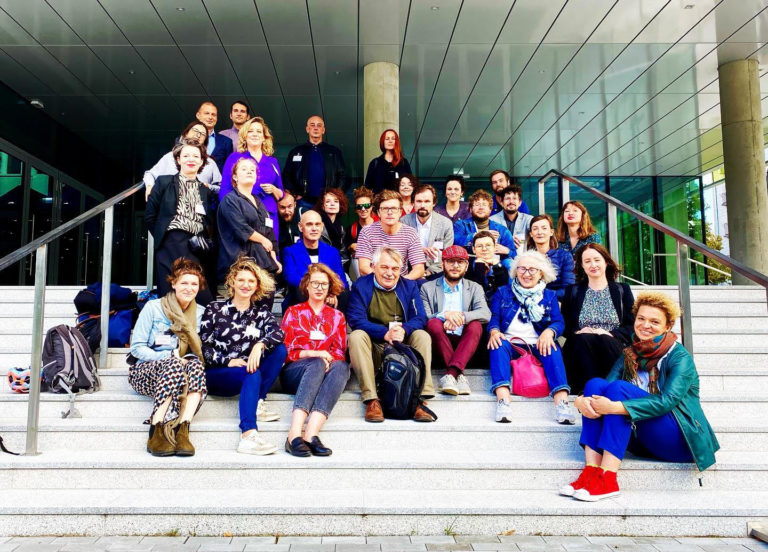
* The rich history of the Department/Institute of Sociology is presented in the book Sociology at the University of Warsaw. Fragments of History [compiled by Antoni Sułek, 2007), published as part of the celebration of the 50th anniversary of the return of sociology at the UW, and in the section “Sociology”, in the book Social Sciences at the University of Warsaw published in the series “Monumenta Universitatis Varsoviensis 1816-2016], (2020).
